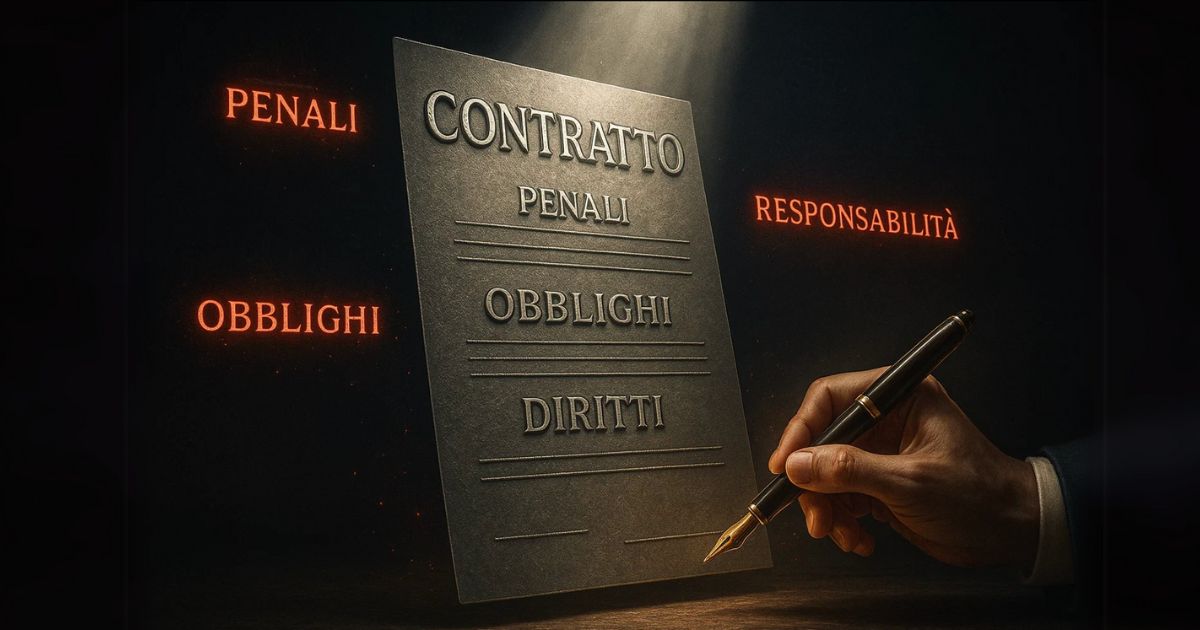Whoever grants their trademark, know-how, or other industrial property rights through a franchising or licensing agreement has every interest in protecting themselves from unfair competitive behavior. Non-compete clauses serve exactly this purpose. But they are not always valid. Italian and EU regulations establish precise criteria to determine whether a restriction is legitimate or legally ineffective.
In this article, we explain when such clauses are truly effective and when they become a blunt instrument. Because drafting a good contract isn’t just about protecting oneself: it also means avoiding unnecessary litigation, preserving the value of the business, and balancing the interests of both parties.
What are non-compete clauses for?
Imagine opening a business using the name, brand, and method of an established company. You’re probably doing so under a franchising agreement. Or perhaps you are being granted the use of a trademark or technology through a licensing contract. In both cases, the provider of these rights wants to prevent one thing: that you become a direct competitor after learning the trade.
For this reason, commercial contracts often include so-called non-compete clauses. These are provisions that limit one party’s (usually the franchisee’s or licensee’s) freedom to compete directly, both during the term of the agreement and after its termination.
The purpose is clear: to protect know-how, business strategies, and client bases—especially in sectors where the exchange of information and resources is intense and ongoing.
In franchising, the non-compete clause protects the franchisor from the risk that the franchisee might replicate the system (brand, format, manuals, training) on their own after learning it. Similarly, in licensing contracts, the rights holder may wish to prevent the licensee—having gained experience—from becoming a direct competitor.
So far, the usefulness of this tool is obvious. But because it limits contractual and economic freedom, lawmakers—both Italian and European—have set strict criteria for validity, often disregarded in practice.
Non-compete clauses in franchising contracts
In Italy, franchising contracts are governed by Law No. 129/2004. This is a widely used mechanism to expand commercial activities without directly opening new stores. The franchisor provides the franchisee with a complete package: trademark, support, training, furnishings, software, and management rules (see: The franchise agreement, step by step – Canella Camaiora). Thus, limiting competitive autonomy—during and after the contract—is understandable.
However, this need for protection does not justify unlimited or vague restrictions. Article 2596 of the Italian Civil Code has long set out three key conditions for non-compete clauses to be valid:
- they must have a set duration,
- they must be geographically limited,
- and they must relate to clearly defined and competitive activities.
Additionally, EU Regulation 2022/720, effective since June 1, 2022, further tightens restrictions on post-contractual clauses in vertical relationships such as franchising. According to the regulation:
- the clause must not exceed 12 months post-contract;
- the restriction must be necessary to protect transferred know-how;
- and it must apply only to the location or territory where the franchisee operated.
If a clause imposes a non-compete obligation for 2 or 3 years post-contract—even if signed by both parties—it will be reduced to the legally allowed limits.
Non-compete clauses in licensing contracts: similar logic, some differences
Licensing contracts, particularly those involving trademarks or know-how, may also include non-compete clauses. Here, the rights holder wants to prevent the licensee from using the licensed asset to later become a direct competitor.
Unlike franchising, licensing does not necessarily imply an ongoing relationship or a complete business package. However, the risks are similar: the licensee may learn a lot and then apply that knowledge independently. That’s why non-compete clauses are common in these contracts as well.
The principles for a valid clause are similar:
- the duration must be reasonable (in any case, not more than 5 years);
- the geographical scope must be consistent with the market area;
- the restricted activities must be clearly defined and directly related to the license’s subject matter.
There is, however, greater emphasis on competition and antitrust concerns: a clause that prohibits any activity, even distant or unrelated ones, may unlawfully hinder competition. In such cases, alongside the Italian Civil Code, EU competition law also applies to prevent restrictive practices.
Drafting a non-compete clause is (still) a strategic decision
What happens if the clause is too broad, too long, or too vague? The answer is simple: it becomes null or is reduced to the legal limits.
Here are some examples of invalid clauses under Italian case law:
- clauses prohibiting any “similar or related” activity, without clearly stating the excluded sectors;
- bans extended to the entire European territory without valid justification;
- post-contract durations beyond what the law permits.
In conclusion, non-compete clauses are useful—often essential—tools to safeguard the investment made in a franchising or licensing agreement. But they must be carefully drafted, respecting the legal boundaries.
An overly restrictive clause doesn’t protect—it exposes the contract to risks. At the same time, a weak clause may fail to adequately defend know-how and business value.
The real issue is not whether to include a non-compete clause, but how to draft it correctly. Because a poorly worded clause not only fails to protect but could destabilize the entire contractual balance.
© Canella Camaiora S.t.A. S.r.l. - All rights reserved.
Publication date: 5 May 2025
Last update: 7 May 2025
Textual reproduction of the article is permitted, even for commercial purposes, within the limit of 15% of its entirety, provided that the source is clearly indicated. In the case of online reproduction, a link to the original article must be included. Unauthorised reproduction or paraphrasing without indication of source will be prosecuted.

Margherita Manca
Lawyer at The Canella Camaiora Law Firm, member of the Milan Bar, she specialises in industrial law.
